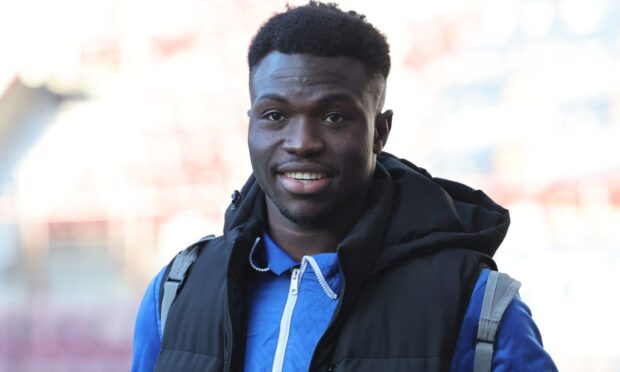To be remembered and revered when you leave a football club you need to have made your mark with numbers, medals or moments.
To be a great you probably have to tick two of those boxes.
To be the greatest, it really has to be all three.
There are a trio of three-time cup winners for St Johnstone but David Wotherspoon is the only three-time starter.
There have been five goals scored by Saints in finals and he is the only man to assist for two.
With five European campaigns to pad out the silverware, that’s the facts and figures and the trophies taken care of.
It’s the intangibles, the emotions, the artistry that separate a Federer from a Djokovic or a Nadal, though. A Ballesteros from a Faldo.
And, in a St Johnstone context, a Wotherspoon from all the others.
His McDiarmid Park story reaches every nook and cranny.
The best Scottish Cup near miss ever
You have to be special for your near-misses to become the stuff legend.
Saints’ answer to Pele and his dummy then shot past the post against Uruguay in the 1970 World Cup is Wotherspoon leaving half the Dundee United team in his wake for what would have been the best goal scored in a Scottish Cup final.
That was an afternoon when a football nation stopped to watch the most important domestic game of the season.
But Wotherspoon has even made a pre-season friendly an occasion that will be passed down the generations in Perth.
When David Wotherspoon destroyed Sunderland goalkeeper Vito Mannone 🔥#tbt@Spoony_10 pic.twitter.com/83BtYLgsnJ
— sjfcnews (@sjfcnews) September 5, 2019
A one-two double then a roll of the ball under the studs of his right boot, sitting Sunderland goalkeeper Vito Mannone down and side-footing into the empty net, was brilliance in any circumstances or any arena.
A couple of English Premier League winners got a close-up view of that one.
It caught people by surprise that Tommy Wright described Wotherspoon as his best signing.
That he didn’t make the cut for the top 50 Saints in a book completed not long after Wright left the club spoke of a player still with one foot in the shadows, while others from that golden era had been afforded a higher profile.
The season of all seasons
One glorious season changed that, of course.
It wasn’t the year the Spoony Chop was born but it was the year it was christened.
To see it enacted up and down the country as Wotherspoon wrote his name all over the cup double campaign was a privilege.
You’ll have to take my word for it that the chop was more magical to behold against the backdrop of an empty stadium and without the noise of a crowd.
There were no distractions and, for an opponent, nowhere to hide.
The senses were sharpened to the simplistic magnificence of one of the most fundamental attacking skills taught from toddler up but that few in Scotland have perfected to this standard.
If it was on your side of the pitch you could fully absorb – see and hear – the defender’s frustration and embarrassment. It was naked bewilderment.
And, for the most famous chop of them all, to be at the national stadium was to fully appreciate Shaun Rooney’s absolute faith that his team-mate had teed up a mismatch and he needed to be at the back post one more time to cash-in.
That flummoxing of Alex Gogic and its part in the double-clinching goal would have been enough. More than enough.
With the fans back, chopping on repeat at Dens Park like a matador toying a bull, spread the joy yet further.
In all its glory…
The Spoony Chop ™️#SJFC pic.twitter.com/LJ0JWIt6Bl
— St. Johnstone FC (@StJohnstone) September 23, 2021
And then player and skill were canonised with the most wondrous of World Cup cameos.
Saints supporters have showered Wotherspoon with affection on social media since a JFK moment to rival the announcement of Wright’s departure three years earlier.
Even if you half-expected he might be let go, that club statement packed a punch.
Those fans will get the chance to shower him with affection in person, as they did Murray Davidson, when a testimonial season gets underway.
For the time being, it was ironic, perhaps even fitting, that Wotherspoon’s last appearance on the pitch of his home-town club fell on the same Sunday afternoon that pupils from his old secondary school were honoured for winning a national cup at Hampden Park.
It hammers home the definition of a local legend.
For St Johnstone, or any other football club and those who love it, that’s as good as it gets.












Conversation